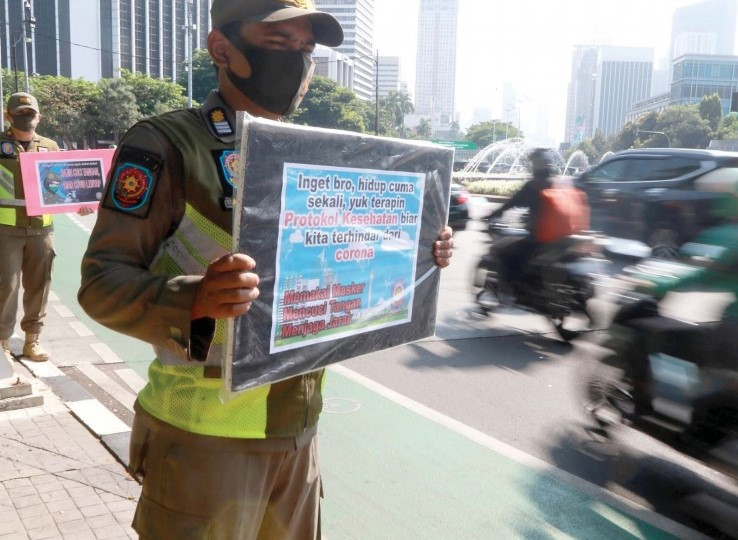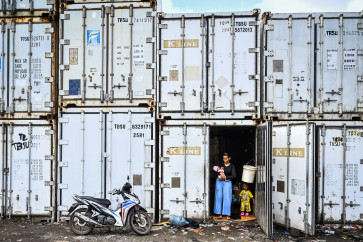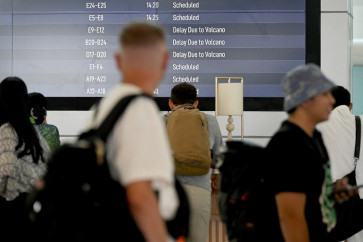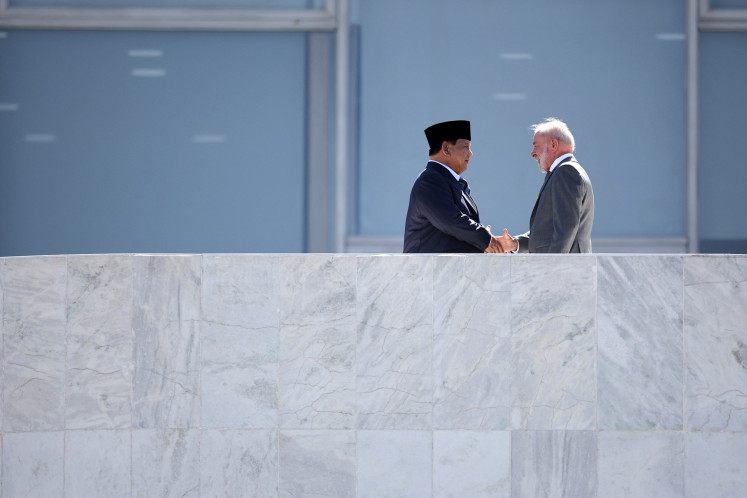Popular Reads
Top Results
Can't find what you're looking for?
View all search resultsPopular Reads
Top Results
Can't find what you're looking for?
View all search results'COVID-19 a disease with a thousand faces': Pulmonologist
“Honestly, [COVID-19] is very confusing. We as physicians are confounded.”
Change text size
Gift Premium Articles
to Anyone
C
OVID-19 is a disease with a thousand faces, Andika Chandra Putra, a pulmonologist from Persahabatan General Hospital (RSUP Persahabatan), has said, noting its symptoms shared similarities with many different diseases.
“Honestly, [COVID-19] is very confusing. We as physicians are confounded,” Andika said Friday as quoted by tempo.co.
The symptoms shown by COVID-19 patients include not only a cold, shortness of breath and pneumonia, but also diarrhea, vomiting, numbness, hiccups, skin rash and pink eye. Some patients even show symptoms similar to strokes and loss of consciousness like that of a brain disorder.
Andika went on to explain that these symptoms occurred because COVID-19 receptors not only appeared in the respiratory tract, but also in the digestive, eye, skin and brain tracts.
As a result, symptoms occur in the tracts where the SARS-CoV-2 virus enters the host cell through the Angiotensin Converting Enzyme 2 (ACE) receptor.
“We cannot differentiate whether the diarrhea is caused by bacterial infection or fungi or COVID-19. We cannot differentiate it by clinical observation only,” Andika said.
The doctor at RSUP Persahabatan, which is one of the COVID-19 referral hospitals in Jakarta, suggested immediate examination, either through a rapid test, swab or polymerase chain reaction (PCR) test. Examinations are also necessary to prevent the disease from spreading even further.
Immediate tests are also necessary to reduce the greater health impacts on the infected patients. "Think of it like a fire. If it’s only a small fire, it will be easier for us to extinguish. But if it's big, of course it needs extra effort to extinguish. So, the point is testing is the most important thing. Then we do tracing, then we do treatment," he said.
Read also: COVID-19 doctor tells Jokowi about shortage of healthcare workers in video call
Moreover, he explained why it was important to always wear a mask during the COVID-19 pandemic.
Andika said the use of a cloth mask, surgical mask or N95 mask had a big impact on the risk of COVID-19 transmission.
He said that each type of mask had different benefits in preventing transmission of viruses, especially the SARS-CoV-2 virus that causes COVID-19.
When compared to cloth masks, surgical masks are more effective in preventing transmission through droplets of saliva because they have three layers, consisting of a waterproof layer on the outside, a middle layer to filter bacteria, germs or viruses and an inner layer to absorb the liquid that comes from mouth.
Meanwhile, the N95 mask is even better than surgical and cloth masks, because it has increased thickness to hold small particles in the air that may contain harmful viruses, he explained.
Even though a cloth mask’s thickness level is not as high as a surgical or N95 mask, cloth masks can still be used by the general public when they have to interact with other people.
"Currently, the recommendations of the World Health Organization [WHO] and the Health Ministry for the general public is that cloth masks are adequate to reduce possible COVID-19 transmission,” he said.
However, he reminded the public that wearing a mask must also be followed by adhering to other health protocols, such as washing your hands with soap under flowing water and maintaining social distance and avoiding crowds.
Separately, during a recent webinar held by the Indonesia Journalist Association (PWI) Jaya’s Indonesia School of Journalism (SJI), Sonia Wibisono, a physician, said the public was on the front lines in flattening COVID-19 transmission.
“Start from maintaining your own health and adhering to health protocols when doing activities that must be done outside of your home. Without all that, the government and the police will find it difficult to deal with the pandemic,” she said as quoted by tribunnews.com. (iwa)
Editor’s note: This article is part of a public campaign by the COVID-19 task force (Satgas COVID-19) to raise people’s awareness about the pandemic.










